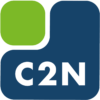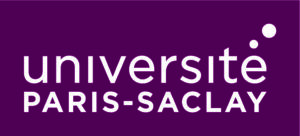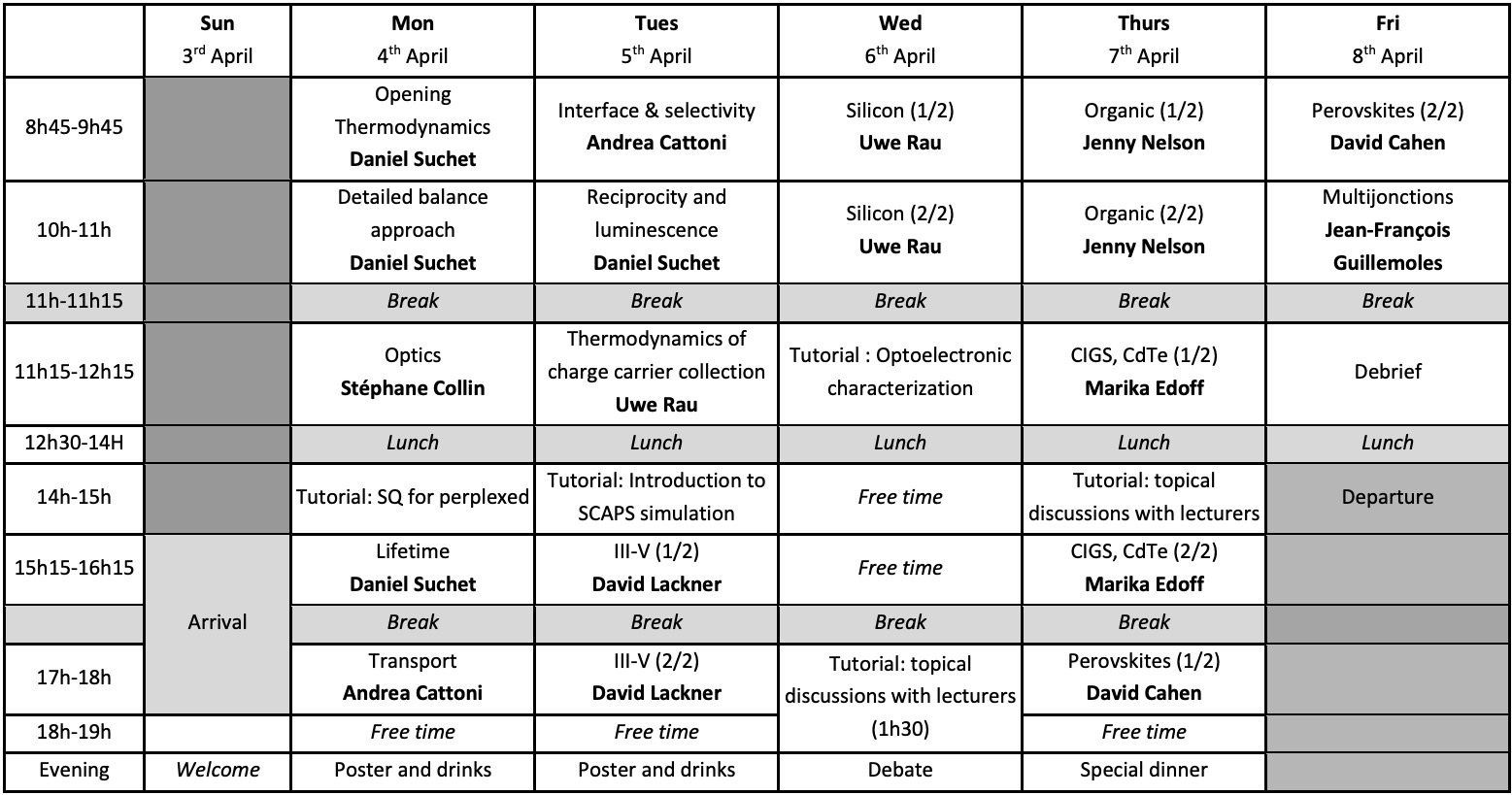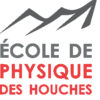Lectures will begin on Monday morning (9:00) and will end Friday noon (12:00). Two poster sessions will be organized, and daily tutorials will be proposed.
Basic PV Science
PV is at the crossroad of many scientific fields, where similar questions can be addressed in different terms. The first lectures of the week aim at building a shared ground on which further presentations will be carried. Starting from a most simple solar cell (Shockley-Queisser limit), non-idealities are progressively introduced to highlight some of the main issues faced by every PV technology. Transverse notions, such as absorptivity, transport, lifetime, selectivity and reciprocity, will be introduced and linked to solar cell performances.
Materials for PV
Non-idealities will then be declined more specifically from a material perspective. Presentations of major PV technologies (Si, III-V, CIGS, CdTe, perovskite, organic) will be conducted by renowned experts of each field.
Lectures will range from synthesis and growth techniques to usual characterization methods. They will provide a broad overview of each material specificity (composition, morphology, doping, defects…) while highlighting similarities shared by different technologies. This will shed light on specific solar cell architecture, contact design and passivation methods used in different technologies as strategies to circumvent materials and processes limitations and benefit from their strong suits.
Tutorials
A daily slot will be devoted to tutorials. Working in small groups under the supervision of lecturers, participants will have the chance to put lectures in practice with hands-on problems inspired by research situations.
Poster session
Two poster sessions will give participants the occasion to present their own work. Authors are invited to include an “open problem” section in their poster, to share unsolved issues and possibly benefit from discussions with other participants and lecturers. Furthermore, a poster-related game will be organized to encourage participants to discover new topics.
The final program is available as a pdf file.
Physics of Solar Cells: from basic principles to material science
3-8 April 2022, Les Houches School of Physics





